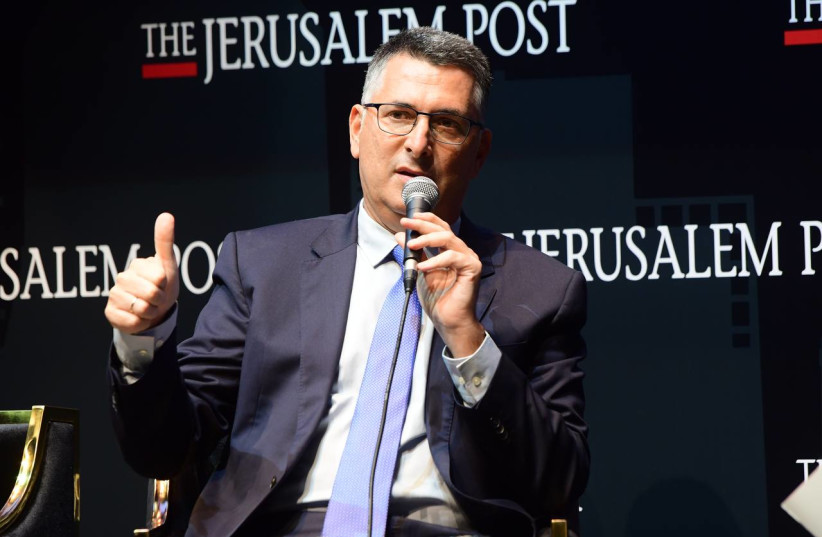Interviews of the 24 candidates for the open spots on the Supreme Court were due to start on Sunday.
The powerful Judicial Selection Committee, chaired by Justice Minister Gideon Sa’ar, has been meeting since August and will replace four justices in this round and another two by October 2023.
By then, more than one-third of the 15 justices on the Supreme Court will have changed, potentially altering the course of the court toward a more conservative direction given that Sa’ar generally prefers conservative justices.
There are already two gaping holes that need to be filled following the retirement of Justices Hanan Melcer and Menachem Mazuz this past April, but who could not be replaced amidst the freezing of all appointments under the prior government of the Likud’s Benjamin Netanyahu and Blue and White’s Benny Gantz.
In April 2022, Neal Hendel and George Karra retire, and by October 2023, Chief Justice Esther Hayut and Anat Baron will also have retired.

On September 30, Sa’ar published the list of 24 candidates.
The candidates are supposed to be narrowed down to six or seven candidates in the near future with the committee expected to make final decisions around November 23.
Besides Sa’ar, the committee also includes: Hayut, Justice Yitzhak Amit, Justice Uzi Vogelman, Interior Minister Ayelet Shaked, Labor MK Efrat Riten, Religious Zionist Party MK Simcha Rotman and Israel Bar Association representatives Muhammad Naamana and Ilana Sakar.
Of all of the candidates, District Judge Khaled Kabub was initially viewed as having the clearest path to an appointment since traditionally there is one Israeli-Arab on the court, and Kabub is viewed as the top candidate to replace Karra.
If selected, he would become the first Muslim ever on the court, given that all Israeli-Arabs to date have come from a Christian background.
However, Kabub’s candidacy could potentially be sidetracked by a controversy that erupted at the beginning of October.
On October 8, The Jerusalem Post published an interview with Sa’ar in which he said he did not want to discuss the specific allegations regarding Kabub.
The controversy surrounds whether Kabub knew some of the problematic activities of some Israeli-Arab activists he had met with who had worked with his father.
But Sa’ar also would not promise that Kabub’s seat was 100% solid. Further, he said that it was even possible for the committee to add new names to the 24-person list. The implication was that there would need to be an Israeli-Arab candidate to replace Kara, so if need be, a new Israeli-Arab candidate could be added.
However, Sa’ar did make it clear though that this was not his preference, as the law would require a delay to republish the updated list – and to date, no new list has been published.
OTHER TOP candidates could include District Judges Ram Vinograd, Ruth Ronen, Yigal Marzel, Gila Kanfu-Steinetz (wife of former minister and Likud MK Yuval Steinitz), Ron Sokol, Tamara Bazak-Rappaport, Revital Yafa-Katz and Michal Agmon-Gonen.
Former Justice Ministry director-general Sigal Yacobi, former IDF military advocate general Maj.-Gen. (res.) Sharon Afek, former Knesset legal adviser Eyal Yinon, former chief public defender Yoav Sapir are also well-known candidates.
Either Yacobi or Afek, if selected, would become the first openly gay appointee to the Supreme Court.
Afek may also be considered to replace Avichai Mandelblit as attorney-general on February 1.
Though Meir Shamgar is an example of a former MAG who eventually became a Supreme Court justice, Mandelblit and former MAG Menachem Finklestein both initially sought district judgeships before ever seeking higher judicial office.
Mandelblit himself probably was unable to seek a seat on the High Court given he is due to serve as attorney-general for the next four months, but may be eligible to fill the vacancies that will emerge in 2023.
Yinon is due to be called as one of many witnesses in the trial of former prime minister Benjamin Netanyahu.
Some other candidates who have been hyped in the media are Kobi Sharbit, Nati Simhoni, Prof. Shahar Lifshitz and former chief government bankruptcy officer David Hahn.
Of the three non Israel-Arab slots, at least one is expected to be a woman, and the political class have been insisting that two of the three will be conservative given Sa’ar and Prime Minister Naftali Bennett’s leanings.
In the horse-trading between the generally more liberal three Supreme Court justices bloc, sometimes supported by the two Israel Bar Association representatives, and the current more conservative political class on the committee, sometimes less known candidates get selected as a compromise between the sides.
Though conventionally the Supreme Court is categorized as liberal, Shaked already shifted it to almost a conservative majority during her 2015-2019 era as justice minister.
Given that three of the four retiring justices in this round are liberals, Sa’ar and Shaked could finally gain a majority on the court, and even cement the majority by 2023 when two more moderate-liberals retire.
